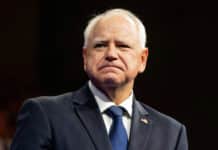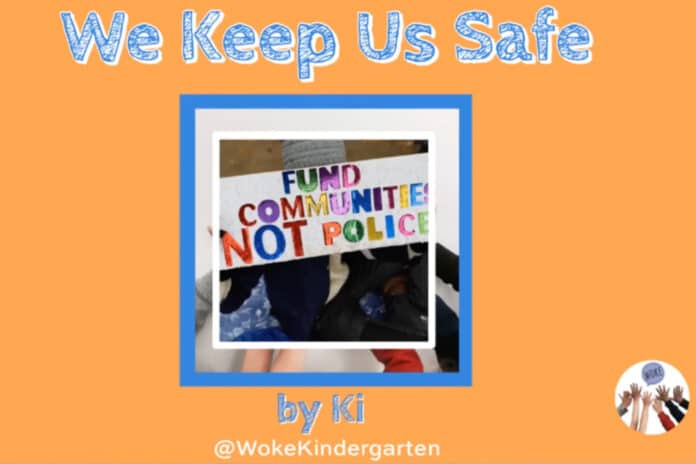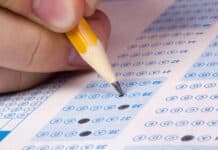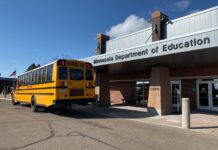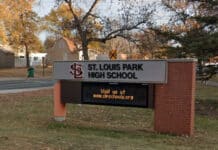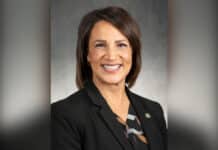(Center of the American Experiment) — The Minnesota Department of Education (MDE) is encouraging a divisive worldview through its “Transformative Social and Emotional Learning (SEL) and Cultural Competency” course used to train school staff on the topic. The course is also pitched as meeting the state’s cultural competency training requirement, which educators have to complete for licensure renewal.
SEL is often framed as helping students develop emotional awareness and self-regulation skills, which certainly contribute to students’ academic success. The problem, however, is that the authoritative source for SEL curricula — the Collaborative for Academic, Social, and Emotional Learning (CASEL) — is dramatically shifting the focus away from simply encouraging emotional and character development to “encouraging students to understand their personal experiences primarily according to race, gender, or other group classifications,” writes Judith Sears for the Foundation Against Intolerance and Racism (FAIR).
CASEL’s “transformative SEL” — which is what MDE’s course is built on — “entirely redefines CASEL’s original five basic SEL competencies: self-awareness, self-management, social awareness, relationship skills, and responsible decision-making,” continues Sears.
“The self-awareness competency, for example, which originally was built around the goals of fostering individual exploration and self-esteem, has been replaced by an ‘intersectional approach’ to individual identity construction, in which students are taught to view their identities as the sum of the social identity groups — race, class, gender, etc. — they fall into. The self-management competency, which used to teach students skills like ‘resilience’ and ‘social efficacy,’ now includes ‘resistance,’ defined as ‘taking actions to advance policies or changes that are consistent with human rights, social justice, and equality.’ Social awareness now includes ‘critical social analysis,’ ‘public regard of one’s racial group,’ and ‘actions to ameliorate oppression and injustice and to realize liberation.'”
To train school staff on this “transformative” form of SEL — which MDE notes “is aimed at redistributing power to promote social justice through increased engagement in school and civic life” — the state department’s workbook includes readings rooted in critical social justice ideology, a suggested call to action that includes “commit[ing] to returning your land,” a push for equity over equality, and a link to pedagogy created by a self-described “abolitionist educator” called “Woke Kindergarten,” to name a few.
According to its website, Woke Kindergarten “is a global, abolitionist early childhood ecosystem and visionary creative portal supporting children, families, educators and organizations in their commitment to abolitionist early education and pro-black and queer and trans liberation.”
Included in its list of 60-second teaching videos for kindergartners:
- “We Keep Us Safe,” which contains anti-police/abolish the police references;
- “Safe,” in which the narrator states, “I feel safe when there are no police”;
- “Jordan Neely,” in which the narrator states, “Instead of helping him, 3 men decided to hurt him until he died”;
- “Climate Injustice,” which contains stolen land/land back references;
- “Spot the Difference,” which asks students if they can “spot the difference” between a series of side-by-side images comparing protests involving certain groups of people of color and those of certain groups of white people.
Additionally, a “Woke Wonderings” section includes graphics asking “unconventional questions rooted in liberatory thought”: what would happen if “the legitimacy of the Supreme Court” was challenged, if the police were abolished, if borders were eradicated, if militaries were defunded and abolished, if the U.S. defunded the Israeli military to assist with “Palestinian liberation,” if capitalism was “disrupt[ed],” if landlords were abolished for free housing for all, and if “stolen land” was “given back,” among others. Under “Woke Word of the Day,” children are introduced to “language of the resistance” and “liberatory vocabulary.”
Incorporating critical social justice formulations “into standard curricula under the guise of the character-forming role of education is deeply problematic for a number of reasons,” continues Sears.
“First, as Helen Pluckrose has observed, people can oppose racism for a variety of reasons. Some might oppose racism out of their religious belief that all people are children of God. Others might espouse classical liberal beliefs that all people should be treated as individuals regardless of cultural, racial, or class categories. A Marxist might fight racism because it obscures the reality of class divisions. In a pluralistic society, a public school district that teaches students that there is only one way to be anti-racist is not only wrong, but it also makes it more difficult to reach every student and convince them of the virtues of being anti-racist.
Second, by encouraging students to classify themselves exclusively by the reductive categories of race, ethnicity, and gender, Transformative SEL fails to teach young people to consider each person as an imperfect human being made up of a myriad of life experience, ancestry, and cultural background. Ultimately, Transformative SEL diminishes students’ identities and teaches them to flatten themselves and others into stereotypes.”
While MDE notes that educators don’t have to take the department’s course to meet the cultural competency license renewal requirement, any alternative training does have to meet certain criteria before it will be approved: including self-reflection and discussion of systemic racism, gender identity including transgender students, and sexual orientation to “deepe[n] teachers’ understanding of their frames of reference, potential bias in these frames, and the impact of bias on expectations for and relationships with students, students’ families, and school communities.”
The state agency is certainly not hiding its ideologically rooted goals.
Catrin Wigfall
Catrin Wigfall is a Policy Fellow at Center of the American Experiment.
Catrin’s experience in education and policy research began during her time with the Young Leaders Program at The Heritage Foundation. Her interest in education policy led her to spend two years teaching 5th grade general education and 6th grade Latin in Arizona as a Teach for America corps member. She then used her classroom experience to transition back into education policy work at the California Policy Center before joining American Experiment in February 2017.
Catrin graduated summa cum laude from Azusa Pacific University in California, where she earned a Bachelor of Arts degree in Political Science.




